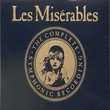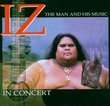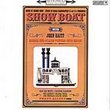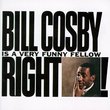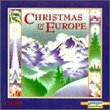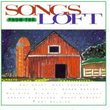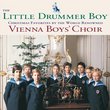| All Artists: Wolfgang Rihm, Caspar Johannes Walter, Benedict Mason, Sîan Edwards, Lucas Vis, Frankfurt Radio Symphony Orchestra Title: Reinhold Friedrich Plays Mason, Walter, Rihm Members Wishing: 0 Total Copies: 0 Label: Capriccio Release Date: 7/24/2001 Genre: Classical Styles: Chamber Music, Forms & Genres, Concertos, Historical Periods, Classical (c.1770-1830), Instruments, Brass Number of Discs: 1 SwapaCD Credits: 1 UPC: 018111088022 |
Search - Wolfgang Rihm, Caspar Johannes Walter, Benedict Mason :: Reinhold Friedrich Plays Mason, Walter, Rihm
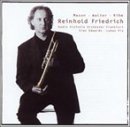 | Wolfgang Rihm, Caspar Johannes Walter, Benedict Mason Reinhold Friedrich Plays Mason, Walter, Rihm Genre: Classical
|
Larger Image |
CD DetailsSimilarly Requested CDs
|
CD ReviewsThree readings of the post modern, What was scarecrow | Chicago, Illinois United States | 06/13/2006 (5 out of 5 stars) "Rihm can be boring, depending on the genre and how much he has spent himself there, for his ideas easily get eaten up quickly by wherever he finds himself situated, the String Quartets for example are all marvelously exciting with e birth to death narrative with some venturing into Mahlerian lengths and dramatic scope as the Third Quartet. This trumpet rhapsody amples along for a whilelike it is lost, almost arbitrary melodic lines in the trumpet,I suppose this gives a sense of tension, of being lost, without focus, anti-romantic, for the soloist is suppose to guide, perhaps not in the 20th Century, all guides have disappeared or questioned out of existence, its Rihm's unaltered on-goinf sense that keeps his music on target, he is committed to the end,even though he gives the impression of getting lost himself, ambling around in and out of fragements of the expressionist realms, the almost organlike sounding marimba following the pitches of the trumpet is what?, the tones of the solo trumpet like materials from his sketchbooks, then things get grotesque, the neo-expressionist raises his head; dimensions Rihm has captured so well, I cannot help also recalling the German painter Baselitz,another creative soul full of passion and invention,yet evoking what has been, what was, what cannot be changed;the more un-playful ones.
Rihm has spoken well about his aesthetic, his musical philosophy to allow his materials to direct him wherever, and he does come to suggest almost the history of Romanticism coming to the surface,as if Brahms had lived through the Third Reich' it is all surface anyway for Rihm for his music shuns atonal-like procedures,although you never sense the music is not tightly controlled' he wanted more freedom of gesture in the musical language he has adopted, of pulsations, of the irrational, not afraid anymore of the irrational, the madness dimension so attenuated/discussed after the war,those as Stockhausen hid behind pure theory and technique,pure science,busting the rhythms of the 20th Century into splinters; but Rihm in this concerto is explosive, always inventive when you feel he has reached the ends of an idea, a phrase a gesture, gesturing forward, with snarling French Horns, motoric, incestuous rhythms,there is something new,we may not like it as functions change like with tympani as an alter ego, with the trumpet trying to maintain his role here, you sense however the music is following a plan for the music is stilted much of the time, suggesting jaz even with a walking bass and muted trumpet, but it is only a caracature, it is not jazz, it is Rihm playing at jazz, another piece of garbage from the 20th Century, all part of junkspace. The Caspar Johannes Walter seems to outdo Rihm at his/their game more graphic, more seedier,more grotesque more intense, yet internal with multiphonics cropping up in the trumpet, well here the materials are parcelled, fragmented into five distinct pieces. But the trumpet works with the orchestral forces to survey the timbral landscape, stopping on a few intervals sustained, before proceeding.Wlater has more control here he needs to keep his materials focused it seems. There are more noise-like almost (dare I say it) film cinema-like ambiences, mists of music for the film, this is music requiring an image which we never get, so Walter does give his materials some integrity, but he doesn't allow their independence their own committment to their own agenda, so all seems lost, perhaps this being lost is what is required. There are wonderful moments however in the typical always heard string glissandi with "witches sabbath" like sounds, timbres for the Nacht, the nocturne, but you can tell Walter studied his extended techniques much more than Rihm although he is not quite as adventuresome as Lachenmann without the theoretical indenpendence Lachenmann can summon to his materials. The trumpet tries to stay in the forefront but is continuously getting disrupted. For Benedict Mason the conceptual seems to be an important component;constructing his own musical discourse;although it is decipherable, a composer where whatever ideas he has seem to not make the effect, the affect of the music all too cumbersome, he needs to keep his music free, , all the sustained-ness in the beginning quickly overdoes its welcome, perhaps the antiphonal-ness is missed on the recording, still Mason is not afraid of taking chances with his music, his creativity, and here the barely audible moments simply makes a CD presentation quite ill-focused, I suspect the beauty in a live performance hall is overwhelming,more gentle and private where the sounds can be followed in space. Mason has a lyrical bent, an affinity here, it is music quite familiar, and he yes indeed allows the listener to have fun, to cherish the moments in the concert hall, so the listener doesn't feel cheated with the Box, the Cash Box forebearance of exchange. There really is no instrumental mixtures, here, timbres are spatial, like fragments, but there is the serious here coming from the hinterland of the majestic trombones, blatting serious their entrances. The trumpet is conceptual, playing with the proceedings again I suspect with, playing with the spaces, the acoustics of the performance room. There is however a kind os spirtuality in this music, like a forgotten time that is summoned here, very English is all one can say, of friendly music, but not too much so, the music has the English reserve to it, a kind of familiar blandness, that captivates you, it is a blandness that is welcome, because it is suggestive of again a liturgy, a spirit of vocal music, the voice is very much present in this music, there are no sweeping orchestral tuttis, or overhwhelming string bodies of canvas. And again Mason brings his avant-garde experiences to his work, simply content to have the trumpet play single tones, on and on and going up to have some high declamations while the trombon choirs try to provide the barest of accompanimental responses, at times however these same trombones sound like monstrous beasts of the depths, but not Wagnerian more folk like from English myth. Then the trumpet is "warming-up" with exercises for a moment, and the orchestra gets back to servicing the concerto genre. It is all a game to Mason, it is all like an interesting game of chess where you go, how you move, when you move, what you reserve, and hold for a future time is what this music seems to be about. It is music quite un-dense, quite parcelled, like a finely wooven piece of cotton, you can see through it in the English summer breeze in the garden by the gnome. Yes gnomes seem to be residing some place in this work, like playing jokes on the listener, for we don't quite know where we are in the work at all times, perhaps Mussorgsky comes to the surface at times, the "catacombs", or the mule-cart slowly grinding by the cottage. There is beauty here as well in open string sonorities, the trumpet disrupting the proceedings. It is quite a beautiful concerto, that grows on you, like the question of the day, or like a cross-word puzzle you just cannot quite complete." |

 Track Listings (6) - Disc #1
Track Listings (6) - Disc #1